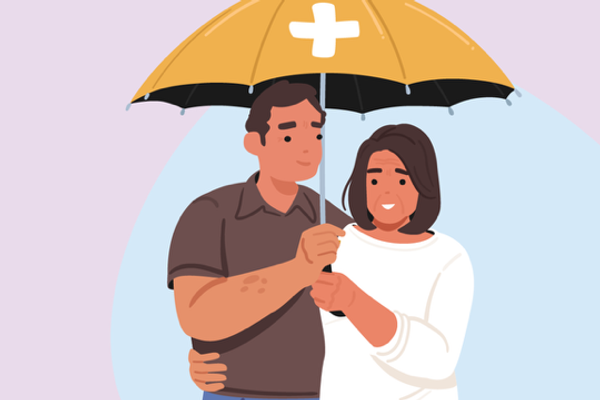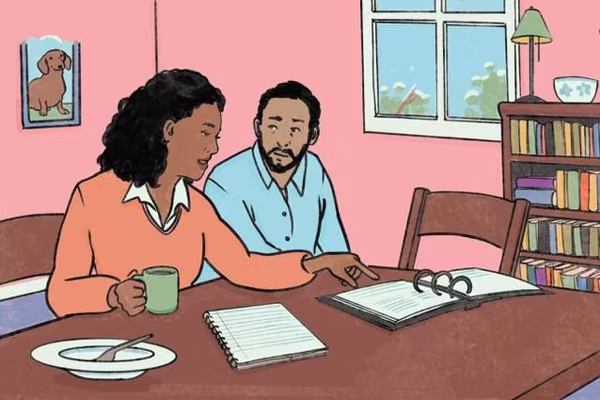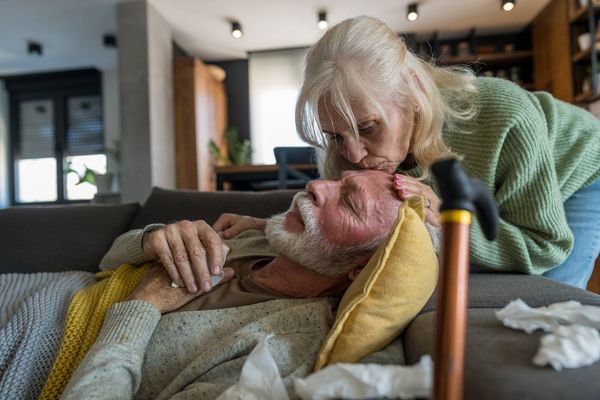Being a caregiver to a cancer patient requires skills beyond the obvious day-to-day tasks and may require you to wear many hats beyond what you expect. Because it's more common now for cancer treatments to be given in an outpatient treatment center than in a hospital, the person you're caring for is more likely to be at home, with diverse concerns and needs that may change as their health changes.
Feeling apprehensive about what lies ahead is normal. Caregiving can be a physically and emotionally demanding role. And it can be understandably shocking and distressing to learn that someone you love has been diagnosed with cancer.
The role of a caregiver is difficult. The typical caregiver, who feeds, dresses and bathes the patient, is already employed and working an average of 34.7 hours a week and is likely to be married or living with a partner. Their responsibilities range from arranging schedules, managing finances and cooking and cleaning to offering emotional support and being a large part of the cancer care team.
As critical and important as your new role is and as meaningful and personally satisfying as it may be, it can also be frustrating, intimidating, challenging and frightening, wrought with new duties and responsibilities you might not be prepared for.
To make the process easier and gain insight into what's ahead, here are some key questions to consider.
What does it feel like to be a caregiver?
It feels like a job, an important job. You will have daily tasks that you need to complete—some may be more exhausting than others—and you’ll carry a lot of responsibility. Reaching out to someone who has been there can give you valuable insight into the process, from a practical and emotional standpoint. By sharing their experience, they can prepare you for the journey ahead and help you understand the intricacies involved and what to expect along the way.
The American Cancer Society reminds us, "No one can be expected to be a caregiver every day, 24 hours a day, for many months or even years." They advise caregivers to try to get out of the house and away from their loved one every day, even if that means just taking a short walk or going out to shop for food.
How can I care for myself?
Caregiving is all-consuming, and many people suffer emotional, physical and mental burnout. As a result, caregiving can have a negative effect on the caregiver's own health, causing fatigue, stress, anxiety and depression and even resentment.
Staying healthy by eating right and getting adequate exercise are vital tools in self-care. So is reaching out to other caregivers for the emotional support you'll need. If you’re looking for support, Embracing Carers™ is a wonderful resource. Caregivers have less distress and feel less burdened when they're able to count on social support.
Who else can I reach out to for help?
It's unrealistic to think you can do everything yourself without assistance from someone else—yet many caregivers are hesitant to admit that. Services known as respite care are meant to offer short-term and temporary relief for caregivers and can maintain or even improve the health of family caregivers. Family members and friends can also pitch in to help, as well as home care nurses or physical therapists.
What will my roles and responsibilities be?
The list is long, especially when the person you're caring for is too sick or weak to do much for themselves. You may be needed to shop for groceries, cook, assist with injections or feeding tubes or other medical necessities, monitor and administer medication, transport the patient to and from medical appointments. Each person requires personalized care and part of the role of caregiver is helping determine what the needs are.
Where can I find support for myself?
Talking to friends and family, professional support programs like Embracing Carers™, nurses, religious or spiritual advisers or social workers all help relieve the inevitable caregiver's stress and make you feel less alone. Whether through online or in-person, it's important to have an outlet to share your stories and get practical advice from others who are experiencing similar challenges. Don't be afraid to let people what you need.
Who will care for my children or family?
If you have a family of your own, caregiving will divide your time. It can be stressful and difficult to juggle the schedules and needs of everyone in your life. Finding a way to balance it all is important to keep everyone on track. You may need to ask or hire someone to help pitch in with the children, but finding your balance will be key.
How will I manage my own work schedule?
Since it's common for caregivers to already have a job, work-related issues and time pressures can occur, especially if the patient is newly diagnosed, in active cancer treatment or nearing the end of their life. Certain types of jobs—like freelancers and consultants—don't get paid if they don't work, while others in more traditional jobs in larger companies may be able to take time off without penalty. If you find yourself in this situation, refer to your company’s benefits policy.
Who will help me understand all the medical information?
You can't be expected to know or completely understand everything that is going on. That's why it's important to find a health care professional, someone in a support group or another person who has been through something similar and reach out with a list of questions.
How do I talk to the cancer patient?
It can be tough to know what to say to someone with cancer or to know when to bring it up and when not to. You don't want to be intrusive, but neither do you want to ignore their fears and concerns. You want to support the patient's feelings without upsetting them by saying the wrong thing. Sometimes just listening is all the person needs. Other times, they may want to talk. Another caregiver who has dealt with this challenge can help prepare you with communication advice.
For more support and resources, check out Embracing Carers™.
Through HealthyWomen, Healthy Economies and Embracing Carers™, EMD Serono is working to address the public health issue of caregiving and support the unique impacts that caregiving has on women.






